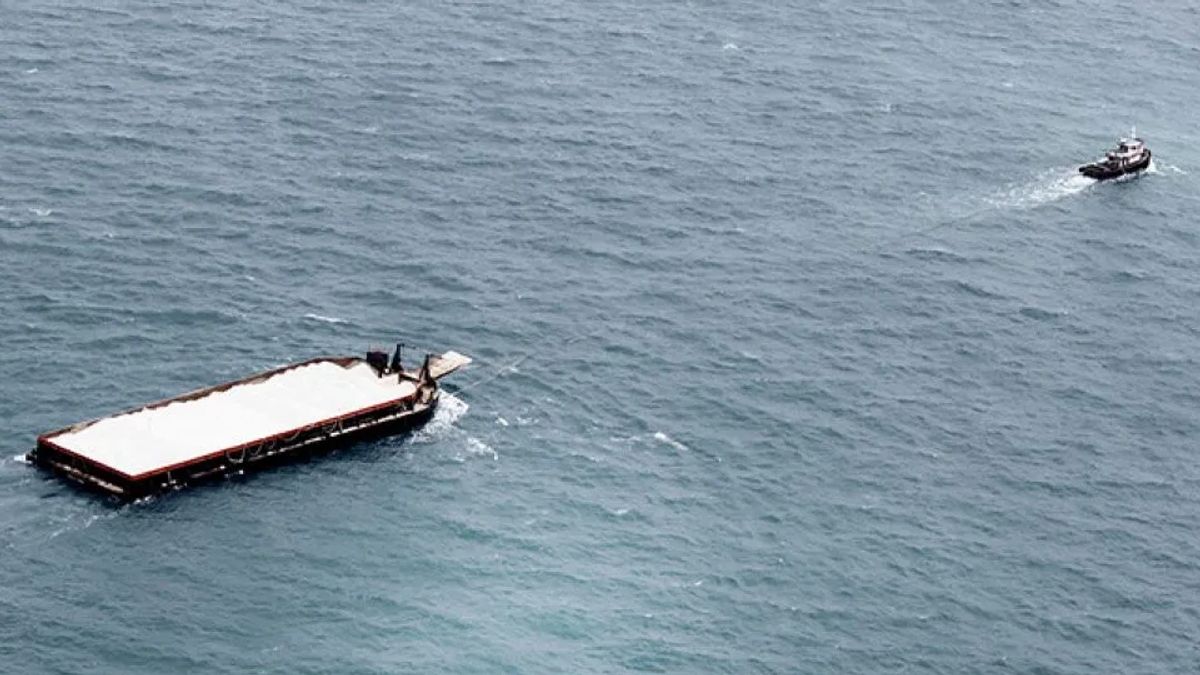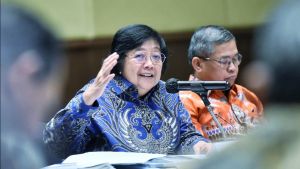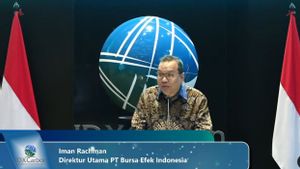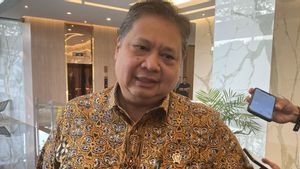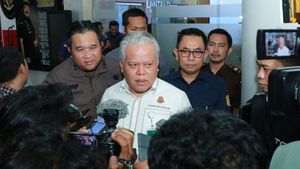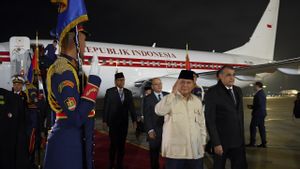JAKARTA - The government's decision to reopen sea sand exports sparked a storm of criticism.
This policy is considered not in line with the downstream program that was heralded by President Joko Widodo (Jokowi).
Senior Economist Piter Abdullah said the economic impact arising from loosening sea sand exports would indeed make the economy grow positively. However, Pieter imposed this impact only for the short term.
According to Pieter, the long-term impact that arises is actually negative. This is because these activities can damage the environment so that it affects the sea and can reduce fishermen's income.
"In the context of computing between countries, who is the real interest of the sea sand? Why is the sea sand used outside?", he told VOI, Thursday, October 3.
"If then the sea sand then strengthens, expands other countries, and we know how, for example, Singapore actually develops, its territory develops from the export of our sea sand," he continued.
Furthermore, Pieter assessed that the decision to relax exports was actually very contradictory to the program echoed by President Jokowi, namely downstreaming.
Pasir laut itu adalah sangat konstractiktif dengan hilirasi. Hilirisasi itu adalah bagaimana kita tidak mengeksport sesuatu raw. Nah ini urah. Pasir. Tidak ada nilai tambahnya," ujarnya.
According to Pieter, allowing sea sand exports to be reopened shows that Jokowi is inconsistent with his goal of creating added value.
The Jokowi government is inconsistent with what it carries downstream. How to create added value from the resources we have. That's the most important thing. Don't say anything else, it's inconsistent," he said.
Pieter said that Indonesia has a lot of resources that can be exported. He also questioned why the government chose to open the tap for sea sand exports.
"Why should it be sea sand? There are other commodities that can still be exported. In my opinion, the main question is that. Who really interests are put forward when we allow sea sand exports," he said.
According to Pieter, there are so many Indonesian commodities that can be downstreamed to get added value without having to relax sea sand exports.
"If he wants to be consistent, there should be a lot of our products, our commodities that can be done downstream, which provides a larger added value, that should be encouraged, not exporting marine sand," he said.
SEE ALSO:
Previously, it was reported that the sea sand export policy took effect after Trade Minister Zulkifli Hasan received a proposal from the Minister of Marine Affairs and Fisheries (KKP) to revise the two Regulations of the Minister of Trade in the export sector.
The revision is contained in the Minister of Trade Regulation Number 20 of 2024 concerning the Second Amendment to the Regulation of the Minister of Trade Number 22 of 2023 concerning Goods Prohibited from Exporting and the Minister of Trade Number 21 of 2024 concerning the Second Amendment to Regulation of the Minister of Trade Number 23 of 2023 concerning Export Policy and Regulation.
The English, Chinese, Japanese, Arabic, and French versions are automatically generated by the AI. So there may still be inaccuracies in translating, please always see Indonesian as our main language. (system supported by DigitalSiber.id)
